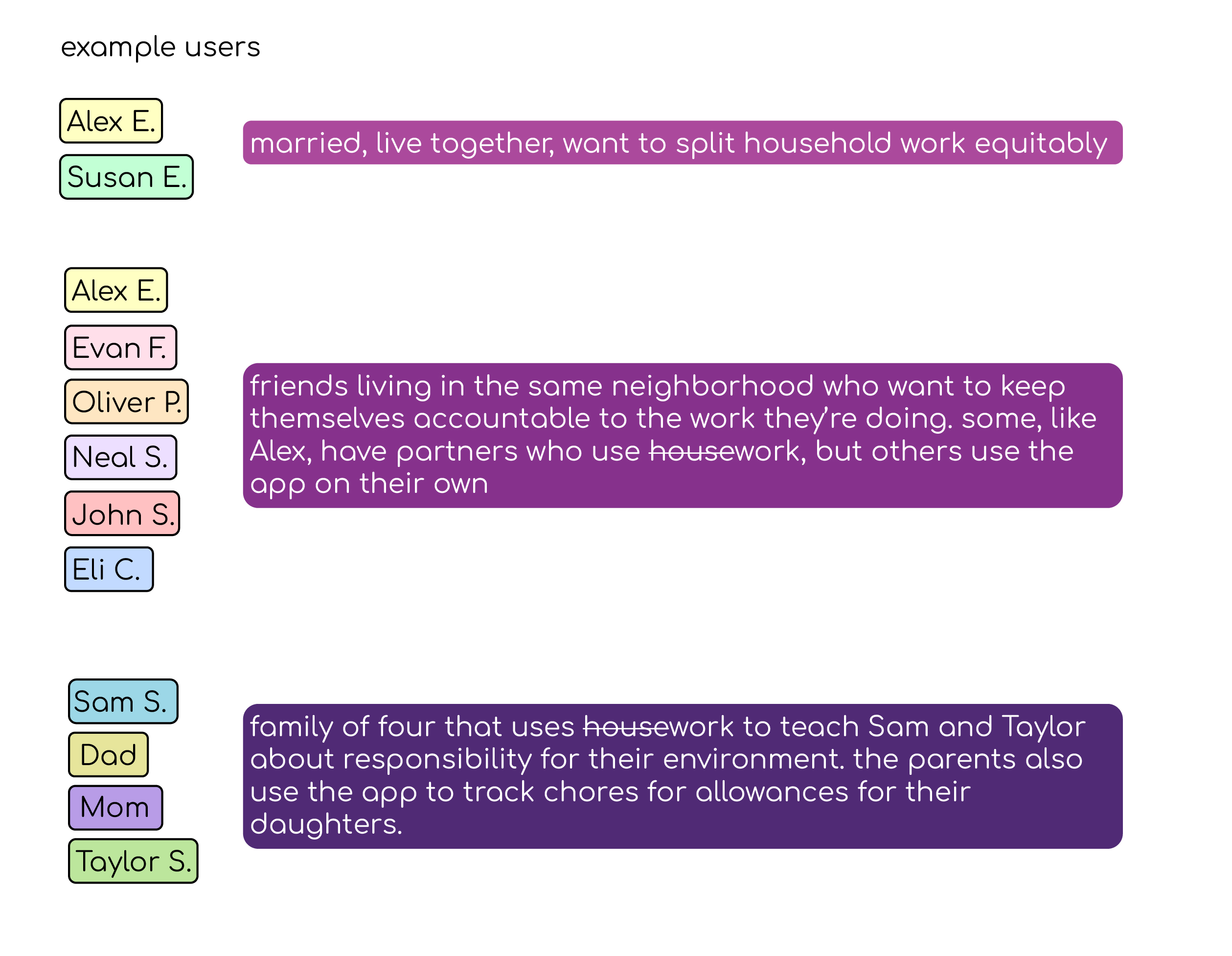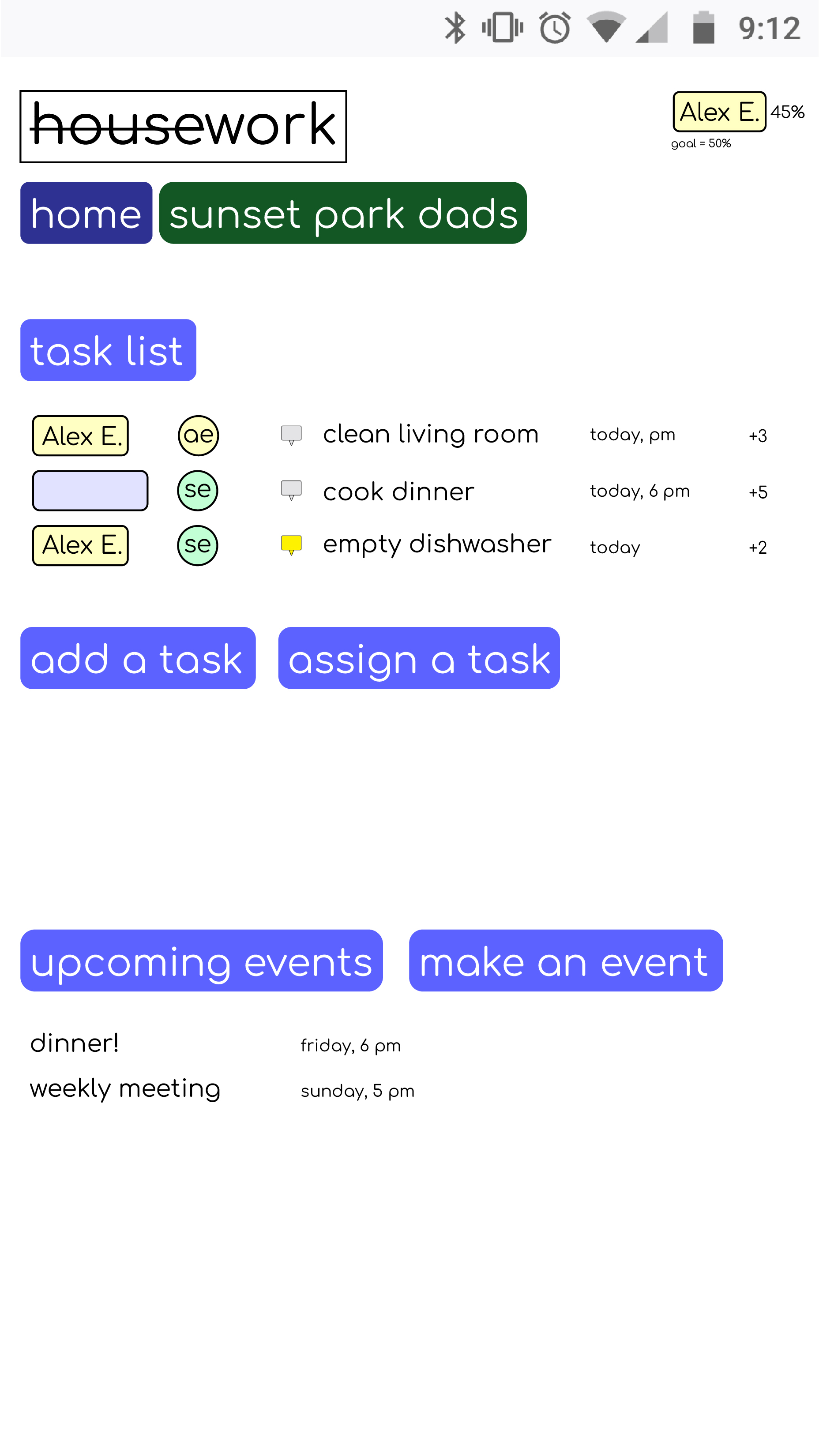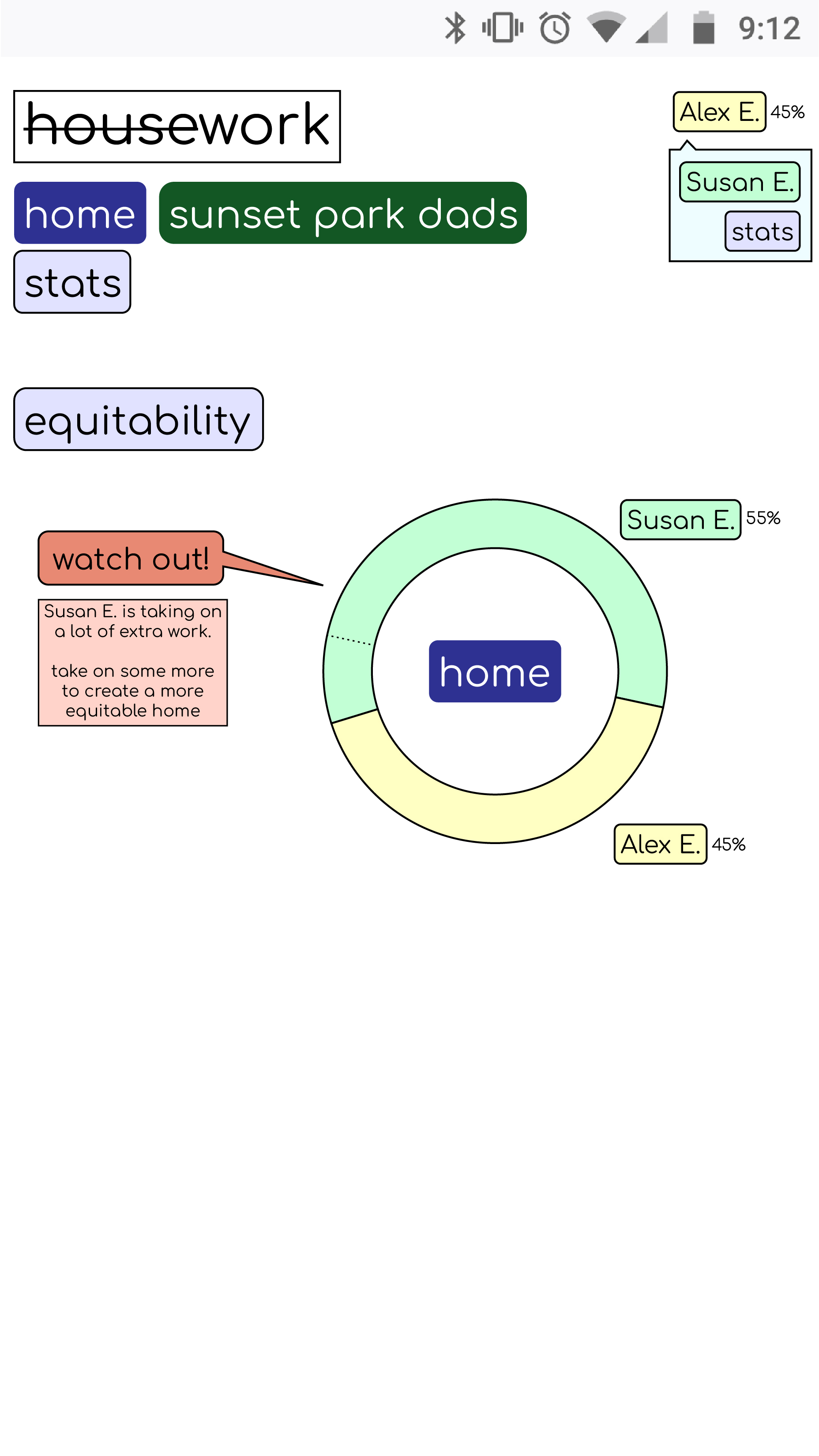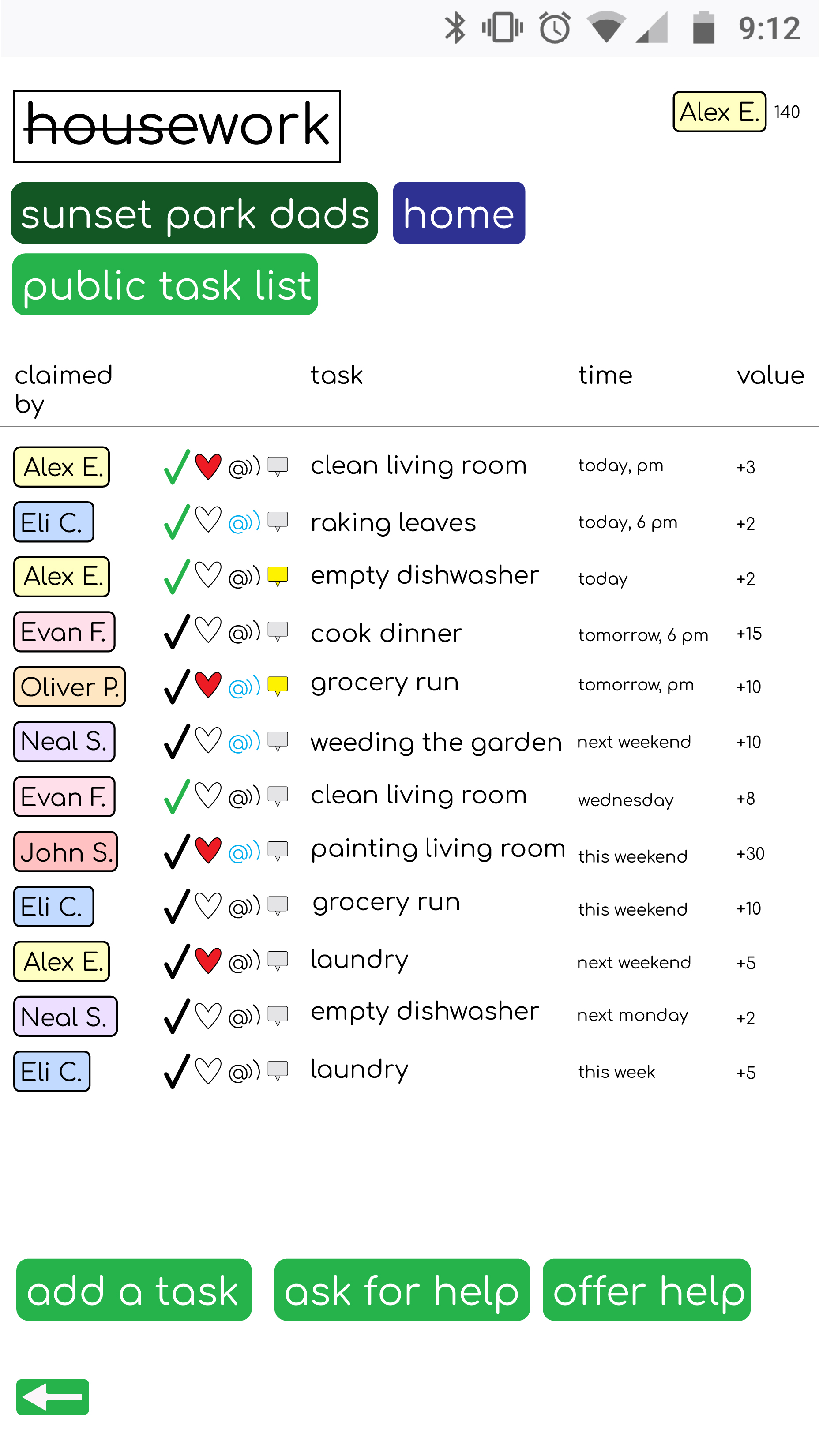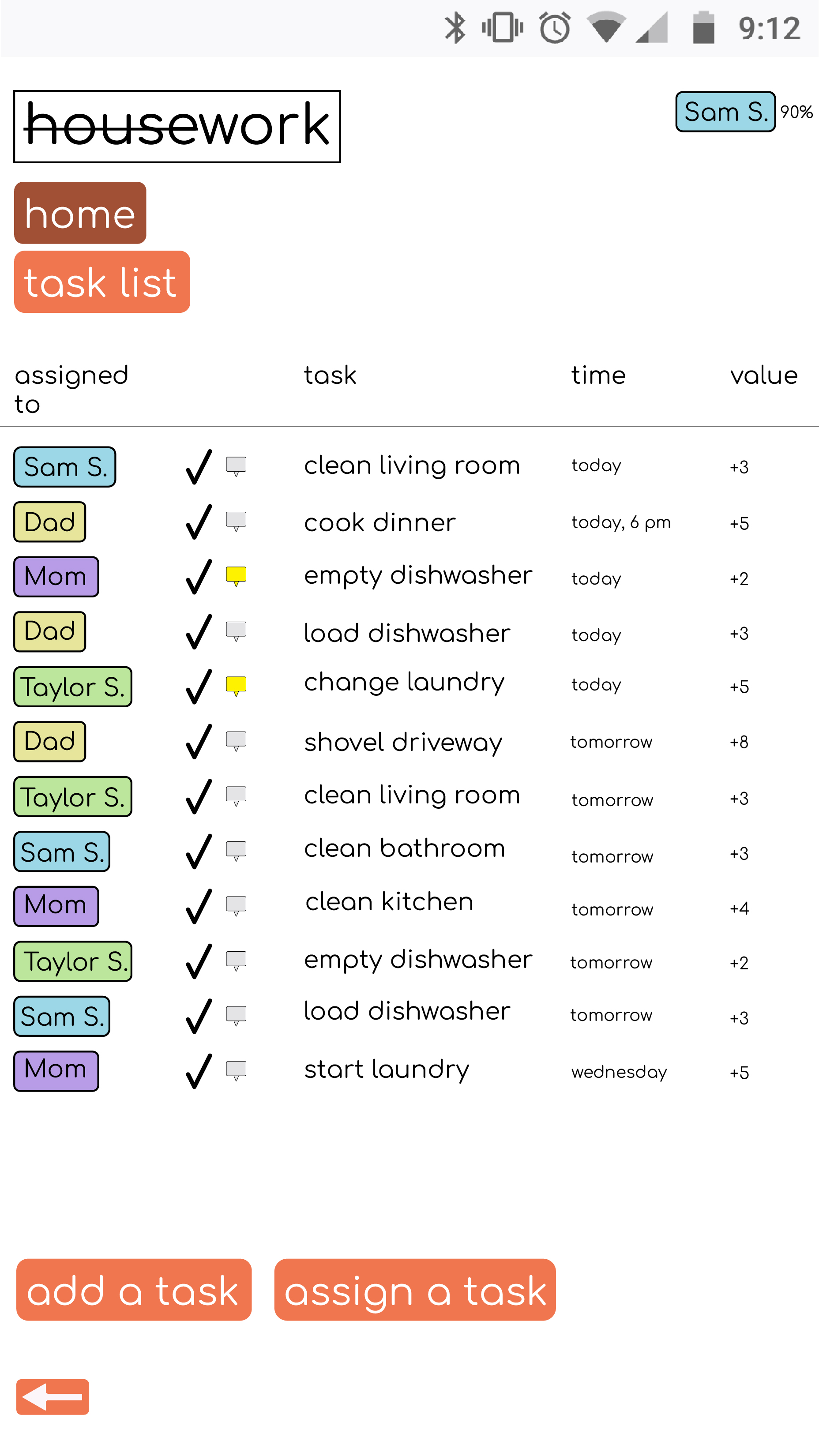housework
arch509 - software space, fall 2020prof. adam fure
problem
housework is often not seen as work. this mindset disproportionately affects women—who end up having to take on housework in addition to their own careers.
this situation has only become more dire during the COVID-19 pandemic. according to a 2020 study based in italy, “most of the additional housework and childcare associated [with] COVID-19 falls on women [and] childcare activities are more equally shared within the couple than housework activities”1
housework is often not seen as work. this mindset disproportionately affects women—who end up having to take on housework in addition to their own careers.
this situation has only become more dire during the COVID-19 pandemic. according to a 2020 study based in italy, “most of the additional housework and childcare associated [with] COVID-19 falls on women [and] childcare activities are more equally shared within the couple than housework activities”1
goal
to re”code” housework to work in order to create a more equitable society.
because this work is relegated to the house, this proposal seeks to make “housework” more visible and to change how people think about it.
to re”code” housework to work in order to create a more equitable society.
because this work is relegated to the house, this proposal seeks to make “housework” more visible and to change how people think about it.
mechanism
housework is an application that helps people think critically about their labor in household work.
through task tracking and gamification, users are able to look at their labor through lenses of equity, accountability, and/or responsibility.
through task tracking and gamification, users are able to look at their labor through lenses of equity, accountability, and/or responsibility.


